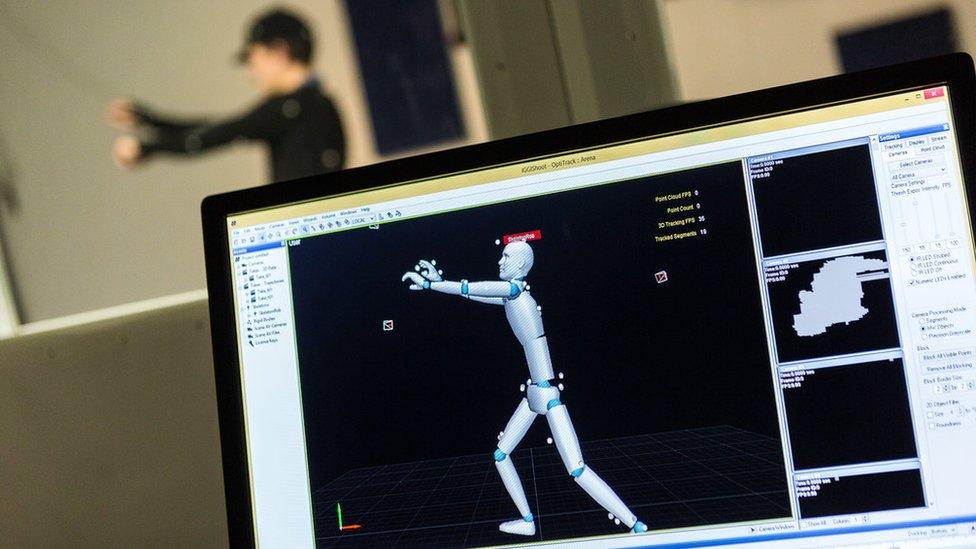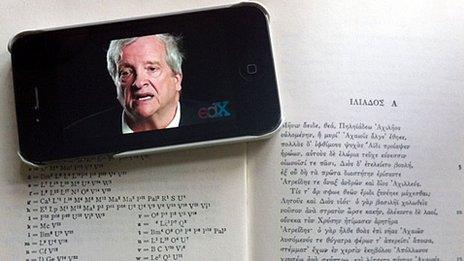University offers science degree online for £5,650 per year
- Published
- comments

The University of London is to announce a fully fledged undergraduate degree course completely taught online for £5,650 per year over three years.
It is aimed at encouraging more part-time, working students, following a fall in their numbers after the increase in tuition fees in England.
There are plans for 3,000 students to take the computer science course.
It comes as the prime minister's review of tuition fees aims to encourage more flexible and cheaper ways to study.
The review follows concerns about the high cost of university, with average graduate debts of more than £50,000.
'Step change'
The University of London claims to have been the first university in the world to offer distance learning - with correspondence courses in the 1850s.
But it is announcing its first online BSc course, to run from next year, with the content produced by academics at Goldsmiths, University of London.

This will be the University of London's first online BSc degree
The university's deputy chief executive, Craig O'Callaghan, says it expects to attract "people who are working and need a more flexible approach".
Part-time student numbers fell by more than 40% after fees increased in 2012 - and the current review of university funding has to find ways to reverse this trend.
There have been other online undergraduate degree courses - such as those pioneered by the Open University.
But the University of London says its entry into this market is the beginning of a "step change" in its approach to using online courses to reach more undergraduate students.
'Older and working students'
The course is being produced in a partnership with one of the world's biggest online university companies, the California-based Coursera.

The computing course content will be from academics at Goldsmiths
This US company, which has 31 million registered students, has developed many free online courses - known as massive open online courses (Moocs) - but these are not accredited degrees.
The deal with the University of London will be Coursera's first fully fledged BSc degree.
It will have group work, live video and individual tuition, all delivered online. But students will go to exam centres for final, invigilated exams.
Jeff Maggioncalda, the chief executive of Coursera, said the new course would be a "game changer" for a "different type of student".
Adults might want to get a degree, but "they're not going to quit their jobs to go back to class", he says.
An online degree will let them stay in work and not have the extra cost of university accommodation, says Mr Maggioncalda.
"So expect a lot of students who are older and working."
'Changes the equation'
The course will begin with a few hundred students, but it is intended to be scaled up to having about 3,000 students - much bigger than a conventionally taught degree course.
This "totally changes the equation" in terms of the finances of delivering university degrees, says Mr Maggioncalda.
"It's so compelling that other universities will have to follow," he says.
Postgraduate courses have become more frequently available online - and Coursera will be announcing a number of other partnerships, including a postgraduate public health degree from Imperial College, London.
Nick Hillman, director of the Higher Education Policy Institute, says that so far technology has not made the impact once predicted for higher education.
Younger students have continued to sign up for traditional courses, regardless of the price, he says.
But there is "definitely scope for new initiatives that do things differently" and the success of online degrees will depend on being able to "tap deeply into the market for non-traditional students, like mature learners".
- Published6 July 2016

- Published24 September 2013

- Published31 October 2012
